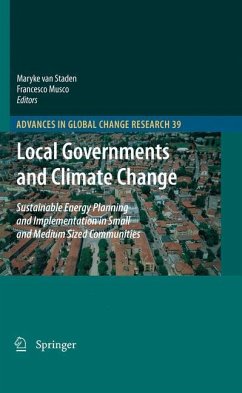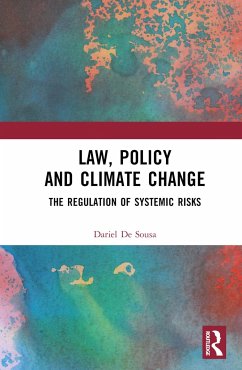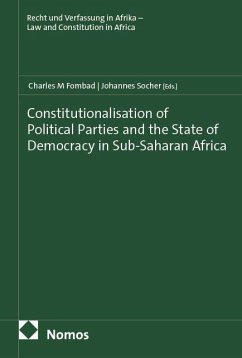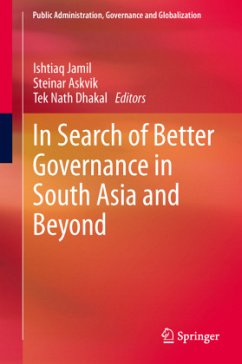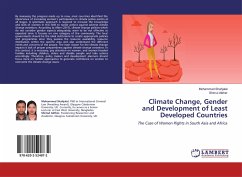
Climate Change, Gender and Development of Least Developed Countries
The Case of Women Rights in South Asia and Africa
Versandkostenfrei!
Versandfertig in 6-10 Tagen
27,99 €
inkl. MwSt.

PAYBACK Punkte
14 °P sammeln!
By reviewing the progress made up to now, most countries identified the importance of increasing women's participation in climate justice events at all stages. A systematic approach is required to increase the knowledge and skills of women in this field to tackle actions against adverse climate change variations. According to Alber (2017), climate change policies which do not consider gender aspects adequately, seem to be not effective as expected since it focuses on one category of the community. The local governments should be the ideal institutions to create appropriate policies and program...
By reviewing the progress made up to now, most countries identified the importance of increasing women's participation in climate justice events at all stages. A systematic approach is required to increase the knowledge and skills of women in this field to tackle actions against adverse climate change variations. According to Alber (2017), climate change policies which do not consider gender aspects adequately, seem to be not effective as expected since it focuses on one category of the community. The local governments should be the ideal institutions to create appropriate policies and programmes since they possess the resource availability, resource distribution within the specific area and also understand the different needs and concerns of the people. The main reason for the climate change impacts is lack of proper preparedness against climate change variations. In this context, it is necessary, pay attention on women, and women headed families including children, elders and disable people and take actions accordingly. Therefore, policy makers and development planners should focus more on holistic approaches to generate confidence on women to overcome the climate change issues.




